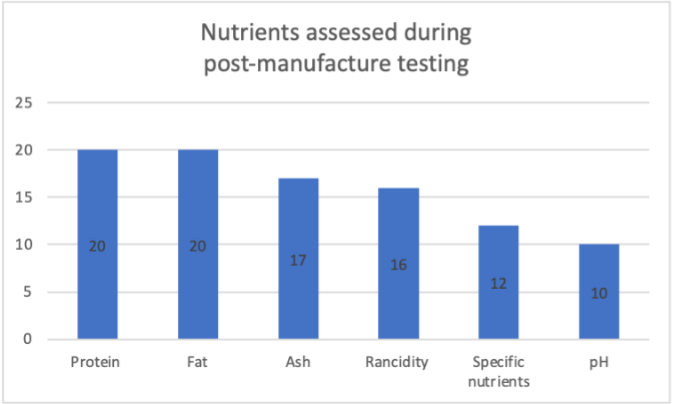The Nutritional Soundness of Meat-Based and Plant-Based Pet Foods
Abstract
Objective
Global trends such as population growth, increasing competition for protein sources, environmental degradation, and farmed animal welfare concerns, are all driving plant-based pet food development. However, lack of evidence of nutritional sufficiency is inhibiting their uptake. This interferes with the ability of some consumers to adopt pet foods more aligned with their values, and the ability of the pet food sector to fully realise the potential of this emerging market, whilst concurrently reducing its environmental footprint. Yet, no systematic study has been published examining the prevalence of steps taken to ensure the nutritional soundness and quality of pet foods, and whether plant-based diets have lower standards in these respects. Accordingly, we designed a study to explore this.
Materials and methods
We surveyed pet food manufacturers producing 19 meat-based and 10 vegan, almost vegan or vegetarian pet foods.
Results
Although there were there were limited areas in which practices could be improved, most manufacturers had acceptable or superior standards at nearly all stages examined, throughout the design, manufacturing, transportation and storage phases, with plant-based diets slightly superior to meat-based diets overall.
Conclusion
A range of best practice steps should be implemented by companies and regulators, and a comprehensive range of communication modalities implemented, to reassure consumers about the nutritional soundness of products.







